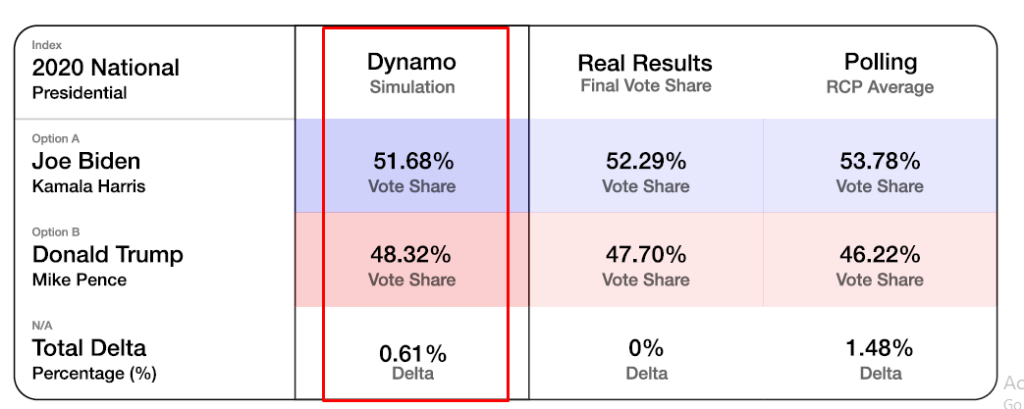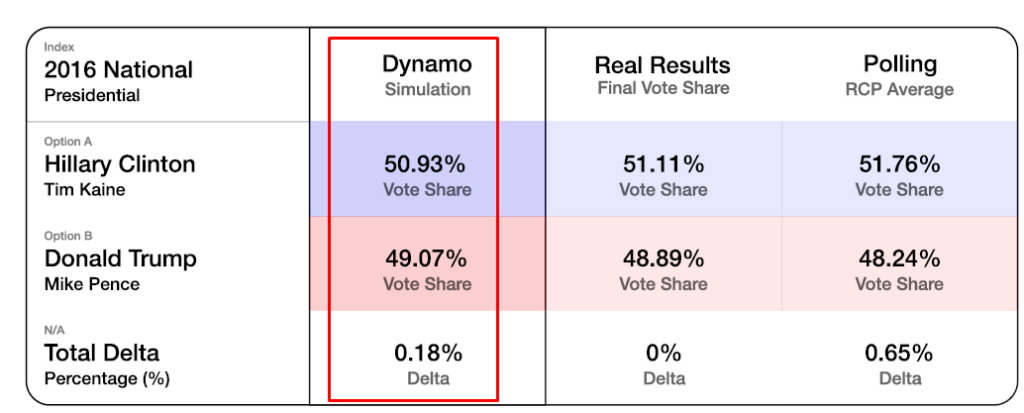Human beings are one of the most unpredicatable species and their preferences can often fluctuate based on their emotional response to enticement from external factors. Now an AI centric start up by the name of Aaru thinks that election results, consumer sentiments could be predicted by training AI agents that have the emotional response to world incidents similar to that of a real human being.
The company has recently released a white paper in which they present Dynamo and Lumen as their flagship AI model used for political simulation and consumer simulation respectively.
How the AI model Works for Election Pollings?
The AI model Dynamo works with the Census Data and replicates virtual simulation of the political scenarios which may indicate that the model could create political leaders also as a part of its intelligent, demographically accurate agents.
The company also states that Dynamo model could also predict national outcomes and even analyze opinions on specific local judges’s past decisions which allows the model to generate more accurate outcomes than pollings and surveys.
“Dynamo is our flagship in political simulation. Dynamo is capable of predicting elections at a national level to modeling opinions on a subcircuit judge’s past rulings. By ingesting census data, Dynamo replicates entire geographies for any customizable environment with a myriad of intelligent, demographically accurate agents, allowing for extremely efficient and cost-effective simulations of politics – more accurate than polling.” the company stated in its white paper.
When it comes to the consumer simulation, another AI model Lumen is used which can be used to analyze reactions to A/B testing and provide details about consumer preferences which may never come out in real life pollings and surveys. The model is able to create realistic environments from demographic data that allows it to produce target audiences for accurate testing.
“Lumen is our flagship in the domain of consumer simulation. Lumen is capable of modeling sentiment for A/B testing, marketing material, and more, bringing unparalleled insights to the consumer space. Using demographic data, Lumen recreates any customizable environment, within which it replicates entire target audiences.”
The company claims that its AI agents constantly surf the web and understand the emotional response of the humans to those events which allows them to understand their preferences.
Talking to Semafor, its founder stated that its AI agents (mimicking the voters) changed their preference to vote for Donald Trump when he was shot in the ear during an assassination attempt. But the AI agents revert to their original preference when more news came about the criminal who attempted to shoot Trump.
Conducting Simulation Pollings for Fortune 500 companies
The company claims that it is working with a number of Fortune 500 companies and also letting their AI models to work for political campaigns, and strategists. The company was founded on 28th March 2024 by Cam Fink, Ned Koh and John Kessler.
It should be noted that the national elections will be held in over 50 countries this year alone.
Results
The company claims that it has tested its technology extensively on the US National elections of last twenty years and its model has predicted the vote share very similar to the actual results of elections.


Will the AI model Disrupt the Market of Public Polling?
In an interview given to Semafor, the founder opines that there will be no election polling by 2030.
“No traditional poll will exist by the time the next general election occurs,” Fink said in an interview with Semafor. “There are massive issues when you’re using real people. You never know if someone is telling the truth.” the co-founder said.
According to BusinessResearchInsights, the public polling and election polling market will be worth $5 billion by 2032 and expected to grow at an CAGR of about 6.5% from 2023.
If the AI models by Aaru mimics consumer sentiments, it could disrupt the polling market and may provide correct insights and true preferences of the users. Aaru claims that its pricing costs 1/10th of the traditional polling and surveys.



